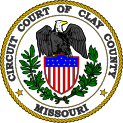About Us
WHAT WE DO...
The Public Administrator’s Office was established in 1880 by the General Assembly, State of Missouri, as an elective office,
such election to be held every four years. The office’s primary duty is to be the Guardian of the person and the Conservator
of a person’s assets; or to be Personal Representative for a deceased person’s assets. The Public Administrator can also be
appointed by the court to serve as trustee for private or public trusts. The office carries out the duties and responsibilities
set for it in the Missouri Revised Statutes by closely following the statutes in the Probate Code, Missouri Revised Statutes,
Chapters 473 and 475. We have a staff of 12 that serves approximately 350 wards and estates.
Although the Public Administrator is widely considered the guardian and conservator of last resort, any family member, hospital,
government agency, or creditor, with the assistance of a probate attorney, can file an application with the court requesting
that the Public Administrator be appointed as guardian and/or conservator of a ward, or personal representative of an estate.
Although some wards and deceased individuals do not have living family, many times their family is unwilling or unable to
serve as guardian, conservator, or personal representative. If there are competing applications for guardian and conservator,
many times the court will appoint the Public Administrator instead of a family member. Additionally, the Public Administrator
can be appointed when the previous guardian, conservator, or personal representative is removed. This most often occurs when
the previous court-appointed representative did not complete the required paperwork.
...
Guardianship:
When the Public Administrator is appointed as guardian, the office is responsible for the management of each ward’s life,
including where they reside, needed medical attention, and other decisions pertaining to personal well-being.
These decisions can concern day-to-day activities and more important quality of life decisions. The Public Administrator
is not required to consult with family or to notify family of decisions. Additionally, many of these decisions occur after
hours, and the Public Administrator and Case Managers are required to be “on-call” 24/7.
By statute, the Public Administrator must file an annual Status Report with the Court, setting out certain information
about where the person is currently residing, recent medical attention, and other notable personal developments.
The Case Managers visit the wards and complete the Status Reports.
Conservatorship:
When the Public Administrator is appointed as conservator, our office is required to secure all assets, collect all income,
and file and pay taxes for all wards. We also prosecute and defend all legal actions instituted on behalf of or against
the estate, collect all debts due or becoming due to the estate, and settle and/or pay all claims.
Thirty days from the appointment as conservator, an inventory of the person’s assets must be filed with the Probate Division.
The physical viewing of assets and collection of financial assets is gathered by a rotating combination of three or four
staff members. We also collect all income and ensure all wards are receiving all the government benefits they are entitled
to by applying for the benefits on their behalf. Each ward has an individual bank account, which must be managed.
We are also required to verify and pay each ward’s bills.
The Public Administrator is required to file an annual settlement for each open ward case. The annual settlement is a record
of the inventory of the estate and of all transactions that have occurred in an estate during the respective fiscal year.
The Probate Division audits these settlements before they are approved by the Probate Judge.
Much of the work of the Public Administrator is of a legal nature. The Public Administrator is allowed to file some legal
documents, such as the annual settlements and applications that constitute perfunctory requests. However, our office often
needs the assistance of attorneys for more complex legal matters. For estates with less than $20,000.00 in assets,
we work with an Assistant County Counselor. For estates with more than $20,000.00, we are required to hire a private attorney
that is paid for by the individual estate.
Personal Representative Estates:
When the Public Administrator is appointed as personal representative, the bulk of the work is very similar to a
conservatorship. The Public Administrator must secure and inventory all assets, financial, personal property,
and real property; settle and pay any claims, and pursue any necessary litigation on behalf of the estate. Usually,
the Public Administrator is appointed on these cases due to serious litigation or very divisive family conflicts.
Fees:
The Public Administrator’s office is allowed by the Missouri Revised Statutes to charge a fee to administer the
affairs of each estate. Conservatorship fees are charged based on billable hours. The Public Administrator’s rate
is $81.00 per hour, and $51.00 per hour for all deputy hours. Personal representative estates can be charged a fee
based on billable hours or on the compensation schedule for statutory fees per §473.153 RSMo. We decide which fee
collection type will be used depending on what is most financially advantageous for the county. All fees must be
approved by the court before they can be paid to the Clay County Treasurer. All fees collected are deposited in
the county general fund.
Estates only pay the fees when they are able. As a result, fees are rarely collected on indigent accounts.
However, staff still tracks their time spent working on a case, and we annually request approval from the court
for the fees in the event the ward should come into funds.
Annual Fees Collected: *revised list pending
Bonding:
The Public Administrator currently holds a corporate surety bond of $800,000.00, which covers estates
with $20,000.00 in assets or less. Additional bonds are issued for individual estates of higher monetary value,
which totaled over $1.85 million as of December 31, 2016.
The Public Administrator is required by statute to file a bond report annually with the Probate Division of
the Circuit Court of Clay County, summarizing the open estates, assets of the estate, and the amount of
the bond required for each estate.

- All about the Public Administrators' Office, established since 1880.
- What We Do
- Guardianship
- Conservatorship
- Personal Representative Estates
- Fees
- Bonding

Resources
This page contains useful information such as facilities, attorney, estate etc.

Estate Planning
Why do you need plan for your estate? What do you need to know? a Wills, Why is better to have a Will? Attorney help and direction...

Important Numbers
Important and useful phone numbers




